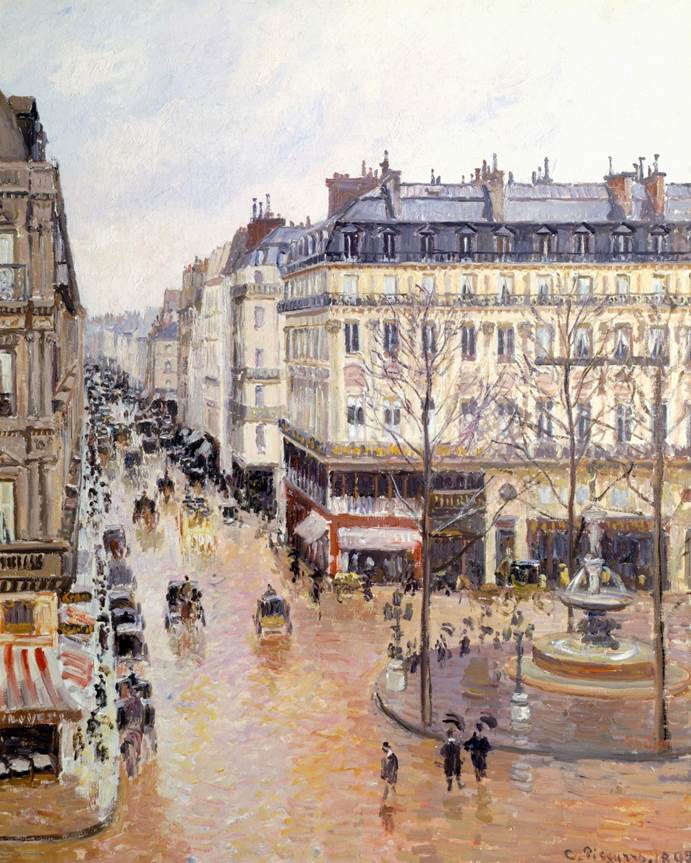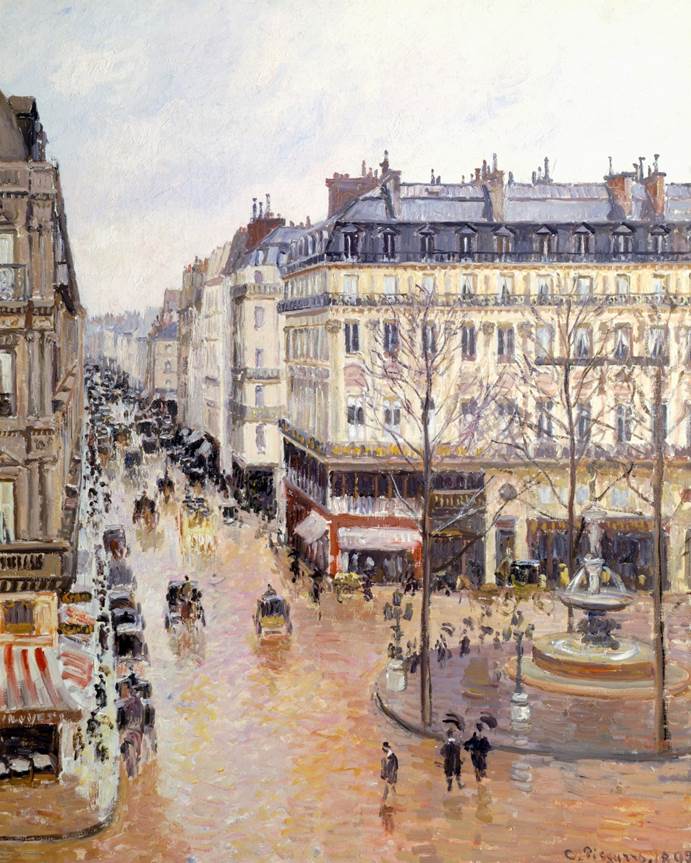The U.S. Court of Appeals for the Ninth Circuit yesterday affirmed the 2019 judgment that allowed the Thyssen-Bornemisza Collection Museum in Madrid to retain Camille Pissarro’s Rue St. Honoré, après-midi, effet de pluie (Rue St. Honoré, Afternoon, Rain Effect) (1892), a painting sold under duress by Lilly Cassirer to a Nazi in 1939. Absent rehearing by the full Ninth Circuit or Supreme Court review, the decision may bring to an end the Cassirers decades-old effort to win restitution of a painting that no one disputes is Nazi-looted art, yet the museum refuses to return. The result turns on the highly deferential standard of review for findings of fact by the trial court about the state of knowledge by Baron Hans-Heinrich Thyssen-Bornemisza when he acquired the painting in 1976. Yet the Ninth Circuit’s lack of enthusiasm for this result fairly leaps off the page, however, first with its decision to issue an unsigned opinion not for publication, and by seconding the District Court’s disappointment in the ruling under review “that Spain and TBC’s refusal to return the Painting to the Cassirers is inconsistent with Spain’s moral commitments under the Washington Principles [on Nazi-Confiscated Art] and Terezin Declaration.” The Court of Appeals’ statement about Spain and the museum that “It is perhaps unfortunate that a country and a government can preen as moralistic in its declarations, yet not be bound by those declarations” is a reminder of the limitations of these moral imperatives that, ironically, many current possessors argue are sufficient to address the problem of Nazi-looted art. It is absolutely true that moral principles often do not have the force of law. It is equally true, however, that flouting moral principles warrants moral sanction. And as multiple judges of the United States have found, Spain deserves just that.
“Moralistic Preening” and Broken Commitments Under the Washington Principles—Ninth Circuit Chastises Spain for Keeping Nazi-looted Pissarro but Rules Painting Will not Return to Cassirer Family
Topics: Terezin Declaration, Thyssen-Bornemisza Collection, Rue St. Honoré après-midi êffet de pluie, Claude Cassirer, Cassirer, Foreign Sovereign Immunities Act, Washington Principles on Nazi-Confiscated Art, Stiftung Preussischer Kulturbesitz, FSIA, expropriation exception”, Baron Hans-Heinrich Thyssen- Bornemisza, Welfenschatz, A Tragic Fate, Reichskammer der bildenden Künste, Jakob Scheidwimmer, Reich Chamber of the Visual Arts, Madrid
Radio Interview Examines Recent Nazi-Looted Art Court Decisions
I was pleased for the opportunity to chat with Larry Perel of KCRW in Santa Barbara about the significance of the recent ruling that the Thyssen-Bornemisza Museum in Madrid is the owner of Rue St. Honoré, effet de pluie by Camille Pissarro—notwithstanding that there was no dispute that it had been looted from the Cassirer by the Nazis. You can listen to the full audio of the radio broadcast here. I discussed the Cassirer case, the more recent decision by the United States Supreme Court not to hear further appeal of Marei von Saher’s lawsuit against the Norton Simon Museum, and other current issues concerning the restitution of Nazi-confiscated art claims. You can read more background on these cases here at the Art Law Report, or in A Tragic Fate—Law and Ethics in the Battle Over Nazi-Looted Art.
Topics: Nazi-looted art, Marei Von Saher, Camille Pissarro, Art Law Report, A Tragic Fate, Thyssen-Bornemisza Museum, Rue St. Honoré effet de pluie, Nazi-confiscated art, Larry Perel, KCRW, Santa Barbara, Madrid




